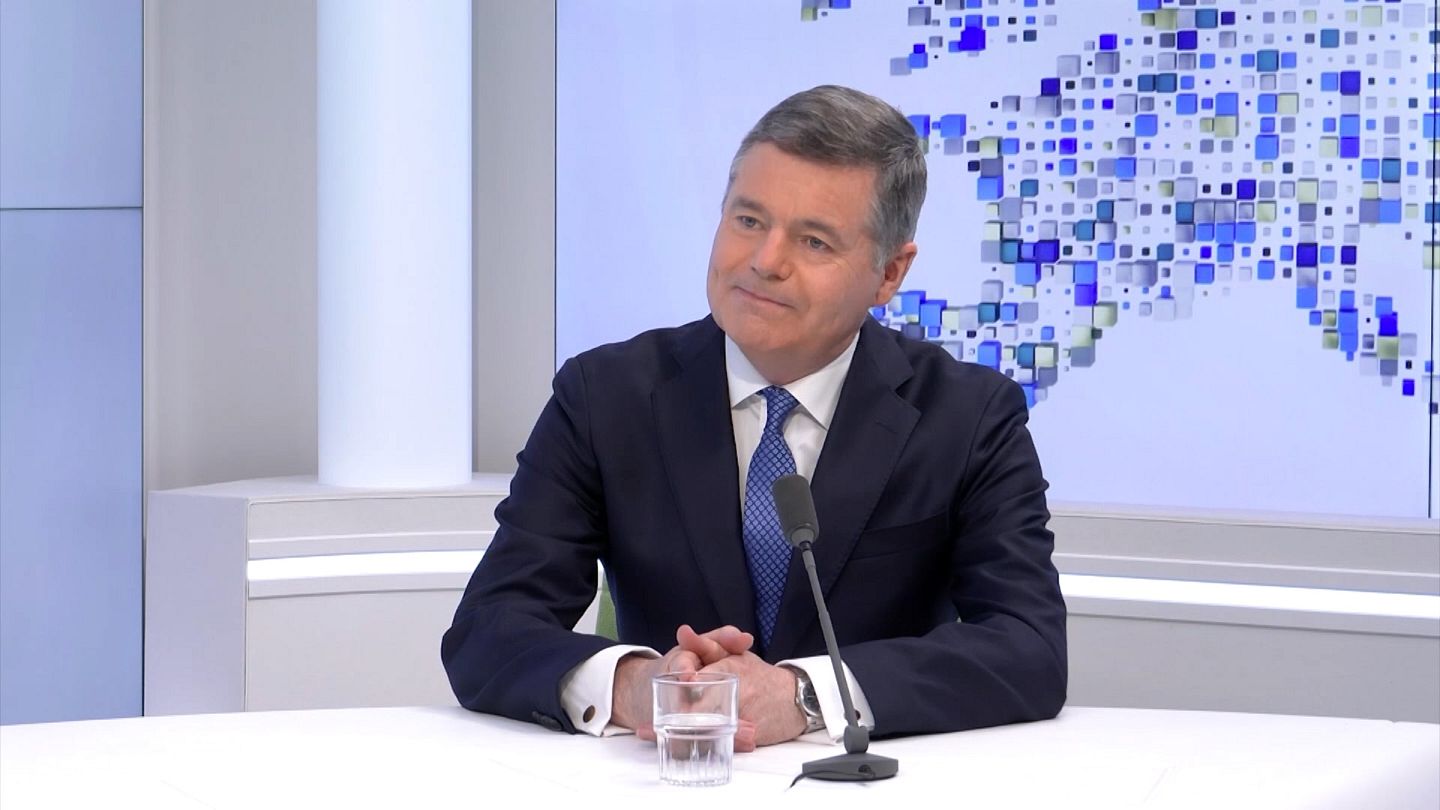Post-war rules-based system is up for negotiation, says Eurogroup president
Irish Finance Minister and Eurogroup President, Paschal Donohoe, believes that the institutions that emerged after World War II are being challenged by the United States. In an exclusive interview with Euronews, he warned that history shows that "progress can decline".
Rules and institutions established under US leadership in the aftermath of World War II are up in the air and up for negotiation, the Irish finance minister and Eurogroup President Paschal Donohoe has told Euronews in an interview.With the United States threatening to pull back defence support from Europe, it has left the continent looking to strengthen its military resources. But according to Donohoe, this is not the only challenge that Europe has to face after Donald Trump's arrival at the White House.“A theme of what is now happening is the rules, the institutions that were set up in the aftermath of World War II, set up with American leadership. They're now being challenged, they're being contested. The institutions that we know, the rules in relation to trade and tax, are all now open for renegotiation. That is now what is happening," he said.Donohoe was clear that no-one should assume progress is inevitable, echoing statements by French President Emannuel Macron and former Italian Prime Minister Mario Draghi, that Europe is vulnerable and mortal. "Our Europe is mortal. It can die", said Macron, while Draghi talked about the risk of a “slow and agonising death”.For the president of the Eurogroup, “All political order, if not capable of dying, is capable of declining. That is one of the many lessons that we have from the study of history. The European Union is no different. If you believe progress is inevitable, you're on your way to seeing that progress decline,’’ he said.Scepticism over joint borrowing for defenceThe Irish finance minister Paschal Donohoe remains sceptical about common borrowing for defence. The Irish minister advocated for common borrowing to recover from the Covid crisis, but is not convinced when it comes to military spending, believing national contributions should bridge funding gaps needed to rearm Europe."It's likely that progress will be made in areas of procurement. Therefore, that means that if there is a defence dimension to the next multiannual financial framework (MFF) and the EU budgets, I still think it's likely to be smaller than the national contribution that members make to their own security and the security of the EU,” Donohoe said.He pointed out that the EU is still repaying the Covid recovery fund (RRF) designed to make EU economies more resilient during the pandemic. An evaluation of the RRF is needed before the EU embarks on new commitments, he said. And he underlined the need to have a more global picture on defence spending, since defence will also be a dimension of the next multi annual budget of the European Union. Member states will soon start negotiating the next spending period, running from 2028 to 2034. “It's difficult to have that debate and not divorce us from the broader reality that firstly we'll be negotiating a budget for the new European Union. Secondly Next Generation EU, which is the new form of common borrowing that we have to deal with the crisis of a number of years ago of the pandemic, that is still happening and still being evaluated and thus in relation to all of that both still has to issue and still has be refinanced and dealt with at some point in the future, all of those things are going to come together,’’ he said.Donohoe is running for a third term as leader of the Euro area, and so far the names of other possible candidates have not been made public. He said he felt encouraged by the level of support that he currently has, though he acknowledged no-one can ever be too sure about what comes next.“An awful lot can happen in a number of weeks in the world that we're in, but I am encouraged by the support I've currently received,” Donohoe concluded.


